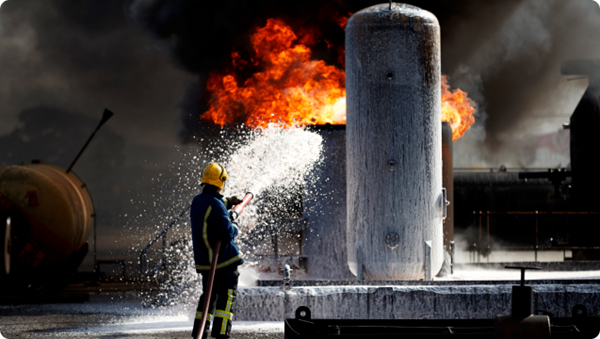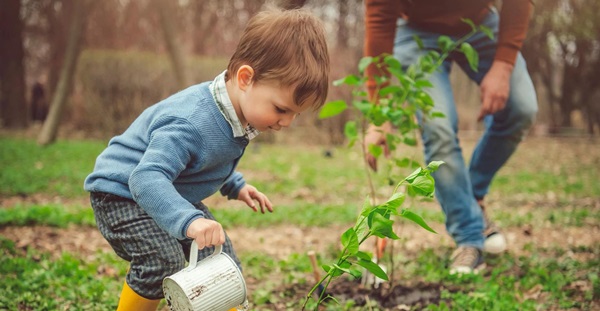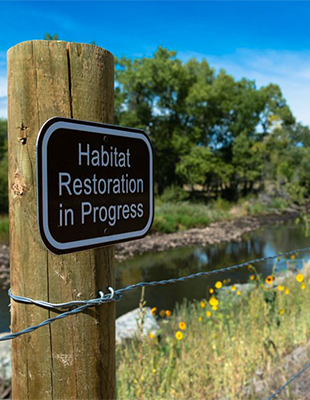The soil of our planet offers a treasure trove of essential services. However, current efforts to protect it mainly focus on the impact of soil contamination on human health and groundwater quality by the most investigated pollutants: hydrocarbons, chlorinated compounds, and metals. Other factors such as radioactivity, erosion, fertility, stability, compaction, biomass, the presence of invasive species or simply contaminants of emerging concern often remain underemphasized.
Towards more complexity in soil research
Yet, due to evolving stakeholder questions, a holistic and more integrated approach to soil research is becoming increasingly important. Also, the attention from politics and media has forced various parties to investigate new parameters overnight which were previously not considered. A clear example is PFAS, a group of contaminating substances that have been overlooked in soil investigations. This illustrates how soil research can continually evolve to address new challenges, thus becoming increasingly complex.
Globally, governmental bodies, progressive consultancy firms, innovative companies, and the academic world are developing new tools, guidelines, and projects to facilitate the integration of key parameters. Think of initiatives like Good Soil, Soil Quality Index, and research on Contaminants of Emerging Concern (CEC).
Arcadis supports governmental bodies and professional associations worldwide in integrating these aspects into policy studies and research projects, developing innovative methods for analysis and remediation. The lessons learned from hundreds of projects related to PFAS can also be applied to better integrate other emerging issues into the field. In such challenges, a multidisciplinary approach and deep expertise are generally keys to success.
Sustainable soil remediation techniques
An often-overlooked aspect of remediating contaminated sites concerns their environmental impacts. Sustainability is becoming an increasingly important part of a holistic remediation design. Techniques that break down contaminants in situ and integrate risk management can increasingly replace traditional methods such as excavation and soil treatment. Sustainability can also guide conceptual choices and highlight opportunities, such as recycling pumped water for cooling installations or less sensitive industrial processes, maximizing positive effects on local communities and biodiversity, and reducing the negative impact of a construction site.
Expertise and innovation are essential in this regard. For example, Arcadis has developed various analysis tools to evaluate carbon emissions at each phase of a project. The results can be presented in an interactive dashboard to identify threats and opportunities for more sustainable alternatives. These tools assist in developing strategies for the environmental impacts and the social and economic consequences of remediation programs. It is crucial to embrace environmentally friendly solutions and digital innovations that transform the sector, integrating resilience into the design of remediation projects to offer sustainable social benefits to the community.
The success of TISR®
Our patented sustainable in-situ thermal treatment method (Thermal In Situ Sustainable Remediation: TISR®) has proven successful multiple times. This process uses renewable energy sources such as solar energy and waste heat to purify soil and groundwater of contaminants. By heating the subsurface, we facilitate physical, biological, and chemical reactions, accelerating and optimizing the remediation process while reducing costs and emissions.
TISR® is flexible and can be tailored to different contaminants and systems. The system is autonomous and can be remotely monitored, making it ideal for a wide range of projects. TISR® devices can be recycled, reducing raw material requirements and waste.
Become a frontrunner
Many of the new methods for remediating soil and groundwater have been made possible by the growing interest of governments and certain companies and organizations. Arcadis can help you apply these technologies and has the knowledge and dedication to guide you in this rapidly evolving field.
Interested in exploring non-traditional parameters or integrating sustainability into remediation? Contact us for more information to create a nature-positive impact together!
Working at Arcadis
Do you want to contribute to this mission alongside our colleagues? We are always looking for new environmental experts to strengthen our team and make an impact in our sector! Send your CV to meggy.cenci@arcadis.com to schedule an initial conversation.





